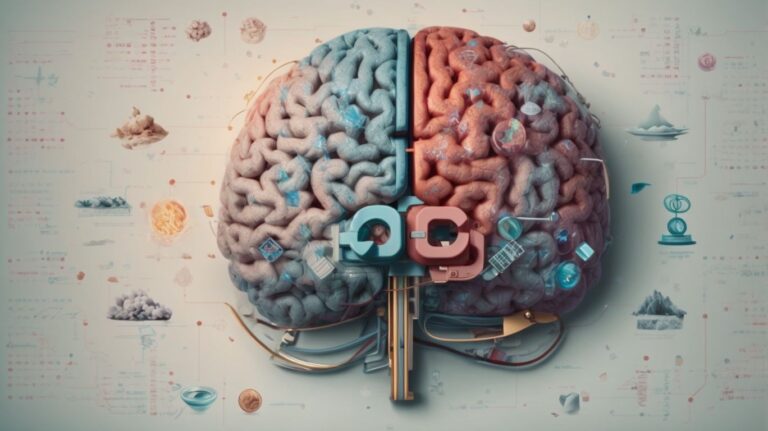Have you ever wondered how your body and mind maintain a stable and balanced state, despite the constant changes and challenges in your environment? This is where homeostasis comes into play.
In this article, we will explore the concept of homeostasis and its significance in psychology. From understanding how homeostasis works to its impact on mental and emotional health, we will delve into the different types of homeostasis and the components involved.
We will discuss the effects of disrupted homeostasis and how it can be maintained or restored. So, grab a cup of tea and let’s unravel the fascinating world of homeostasis in psychology.
Contents
- 1 Key Takeaways:
- 2 What Is Homeostasis?
- 3 Why Is Homeostasis Important in Psychology?
- 4 What Are the Components of Homeostasis in Psychology?
- 5 How Does Homeostasis Affect Mental and Emotional Health?
- 6 What Happens When Homeostasis Is Disrupted?
- 7 How Can Homeostasis Be Maintained or Restored?
- 8 Frequently Asked Questions
- 8.1 What is homeostasis and why is it important in psychology?
- 8.2 How does homeostasis affect mental and emotional health?
- 8.3 What are some examples of homeostasis in psychology?
- 8.4 How can disruptions in homeostasis impact overall well-being?
- 8.5 What are some ways to promote homeostasis in daily life?
- 8.6 How does homeostasis relate to the mind-body connection?
Key Takeaways:
- Homeostasis is the body’s natural ability to maintain a stable internal environment, which is crucial for both physical and mental health.
- There are different types of homeostasis, such as thermoregulation and glucose regulation, that work together to keep the body in balance.
- Disruptions in homeostasis can lead to physical symptoms, mental and emotional imbalances, and can be restored through self-care and professional treatment.
What Is Homeostasis?
Homeostasis is the physiological process through which living organisms maintain a stable internal environment, allowing them to balance temperature, blood pH, and other crucial bodily functions despite external influences.
This process is essential for all living organisms as it ensures optimal conditions for overall health and functioning.
For example, in humans, homeostasis regulates body temperature, blood sugar levels, and electrolyte balance, while in plants, it controls water uptake and nutrient distribution.
Animals have mechanisms like sweating to cool down in hot environments and shivering to generate heat in cold conditions, all to maintain homeostasis.
How Does Homeostasis Work?
Homeostasis works through regulatory mechanisms that enable the body to maintain stable physiological processes, such as temperature regulation, by employing both negative and positive feedback systems to counter external influences.
The body continuously monitors internal conditions to ensure that they remain within a narrow range conducive to efficient cellular function. When a deviation from the set point is detected, a series of physiological responses are triggered.
In the case of temperature regulation, if the body senses an increase in temperature, the hypothalamus signals for responses such as sweating and vasodilation to cool the body, while in colder conditions, shivering and vasoconstriction work to conserve heat.
Why Is Homeostasis Important in Psychology?
The concept of homeostasis holds significant importance in psychology as it elucidates the dynamic equilibrium that allows organisms to survive and respond to internal and external influences, a theory pioneered by Claude Bernard and further developed by Walter Cannon.
Homeostasis plays a crucial role in regulating various physiological processes, ensuring that internal conditions remain stable. This process allows for optimal functioning of the body’s systems, including temperature control, blood sugar regulation, and hormone balance.
Through homeostasis, the body can adapt to environmental changes, maintaining internal stability essential for survival. In psychology, the concept of homeostasis extends to emotional and cognitive balance.
It illustrates how individuals strive for a state of equilibrium in their mental and emotional well-being, seeking to maintain stability and harmony amidst fluctuating internal and external influences.
What Are the Different Types of Homeostasis?
The different types of homeostasis encompass a range of control mechanisms, including those related to temperature regulation, brain function, and positive feedback systems, with diverse examples found across different species, including humans.
Temperature homeostasis involves the body’s ability to maintain a stable internal temperature despite external fluctuations. In humans, this is achieved through processes like sweating and shivering, which help regulate body temperature in response to environmental changes.
Brain function homeostasis is vital for ensuring that the brain’s internal environment remains stable for optimal cognitive functioning. For instance, the blood-brain barrier acts as a protective mechanism to maintain a consistent chemical environment within the brain.
Positive feedback systems, such as blood clotting, amplify a response to maintain stability. An example is the release of oxytocin during childbirth, where contractions stimulate more oxytocin release, leading to increased contractions.
What Are the Components of Homeostasis in Psychology?
The components of homeostasis in psychology encompass the internal environment, feedback mechanisms, set points, and effectors, all of which play integral roles in maintaining physiological balance.
The internal environment refers to the conditions within the body, such as temperature, blood pH, and glucose levels, that need to be regulated within a narrow range to support optimal functioning.
Feedback mechanisms, including negative and positive feedback, are essential in detecting deviations from the set points and initiating responses to restore equilibrium.
Set points act as the target values for physiological parameters, signaling the body to make necessary adjustments when these values deviate.
Effectors, such as muscles or glands, execute the corrective actions dictated by the feedback mechanisms to bring the internal environment back to its set points.
Internal Environment
The internal environment is a critical aspect of homeostasis, encompassing factors such as body temperature, blood pH, and stability, all of which are vital for the well-being of living organisms.
Body temperature regulation is essential to maintain enzymatic functions and cellular processes at their optimal levels.
The internal environment’s ability to maintain a stable blood pH ensures proper oxygen transport and efficient metabolic reactions throughout the body. Blood stability, including appropriate levels of electrolytes and nutrients, plays a crucial role in supporting cellular functions and overall well-being.
Feedback Mechanisms
Feedback mechanisms are crucial components of homeostasis, as they enable the regulation of physiological processes within living organisms to maintain internal balance and stability.
These mechanisms, including negative and positive feedback loops, play a vital role in ensuring that various bodily functions are kept within optimal ranges.
Negative feedback loops work to counteract any deviations from the set point, restoring equilibrium. This is exemplified in processes such as temperature regulation and blood glucose levels.
On the other hand, positive feedback loops reinforce a response, amplifying the initial signal. The intricate interplay of these feedback mechanisms is essential in sustaining the health and well-being of living organisms.
Set Points
Set points are critical in homeostasis, as they define the physiological control range within which various bodily functions, specific to different species including humans, are maintained.
These set points act as internal reference levels, ensuring that the body’s internal environment remains stable despite external fluctuations.
For example, the set point for body temperature in humans is typically around 98.6°F (37°C), and the body works to maintain this temperature within a narrow range. Similarly, set points for blood glucose levels, blood pressure, and pH levels play crucial roles in maintaining overall health and function.
Effectors
Effectors play a vital role in homeostasis, as they are responsible for regulating biological systems within various species, including humans, to maintain internal stability and balance.
In simple terms, effectors are the agents that bring about the necessary physiological responses to counteract any deviations from the body’s ideal conditions. They are intricately involved in processes such as temperature regulation, blood sugar control, and pH balance.
The efficiency of these effectors ensures that an organism’s internal environment remains suitable for cellular function and overall well-being. This means that without properly functioning effectors, living organisms would struggle to cope with changing external conditions, leading to potential health risks and imbalances.
How Does Homeostasis Affect Mental and Emotional Health?
Homeostasis significantly impacts mental and emotional health by influencing stress response, mood regulation, and cognitive functioning, all of which contribute to overall psychological well-being.
When homeostasis is disrupted, it can have profound effects on mental and emotional well-being. For instance, a dysregulated stress response can lead to chronic stress, increasing the risk of anxiety and depression.
Mood regulation, another critical aspect influenced by homeostasis, is essential for maintaining emotional stability and resilience. Cognitive functioning, including memory and decision-making, relies on the delicate balance maintained by homeostasis.
Understanding the intricate connections between homeostasis and mental health is crucial for developing effective interventions and promoting overall well-being.
Stress Response
The stress response, influenced by homeostasis, has a profound impact on mental and emotional health, shaping individuals’ reactions to challenging and demanding situations.
Homeostasis, the body’s natural tendency to maintain internal stability, plays a pivotal role in modulating the stress response. When the equilibrium is disrupted by stressors, the body activates various physiological and psychological mechanisms to restore balance.
These mechanisms, collectively known as the stress response, involve the release of hormones such as cortisol and adrenaline, triggering a cascade of reactions.
The stress response not only prepares the body to cope with immediate stress but also influences long-term mental and emotional well-being.
Prolonged or excessive activation of the stress response can lead to detrimental effects on overall mental health, affecting mood, cognition, and behavior. It can impede the brain’s regulatory functions, exacerbate anxiety, depression, and contribute to various mental health disorders.
Mood Regulation
Mood regulation, influenced by homeostasis, plays a crucial role in shaping individuals’ mental and emotional health, contributing to overall psychological well-being.
Homeostasis, the body’s ability to maintain stable internal conditions, including emotional balance, is interconnected with mood regulation.
When homeostasis is disrupted, it can lead to fluctuations in mood, impacting mental health.
The regulation of biochemical processes, such as the production and balance of neurotransmitters like serotonin and dopamine, influences mood and emotional stability. For more information on the importance of homeostasis in psychology, visit this reputable source.
These neurotransmitters are vital for maintaining mood equilibrium and are often linked to mental health conditions.
Cognitive Functioning
Cognitive functioning, influenced by homeostasis, significantly affects mental and emotional health, shaping individuals’ cognitive responses and adaptive abilities in various situations.
Homeostasis, the body’s ability to maintain internal stability amid external changes, directly impacts cognitive processes such as attention, memory, and decision-making.
When homeostasis is disrupted, cognitive functioning may be impaired, leading to difficulties in processing emotions and managing stress.
The brain’s neurotransmitter balance, which is regulated by homeostasis, plays a crucial role in determining mood and emotional regulation.
Therefore, understanding the interplay between homeostasis and cognitive functioning is fundamental in promoting mental and emotional well-being.
What Happens When Homeostasis Is Disrupted?
When homeostasis is disrupted, it can lead to a range of physical symptoms, as well as affect mental and emotional well-being, highlighting the critical impact of this disturbance on overall health.
Physical symptoms arising from homeostasis disruption can manifest in various ways, such as irregular heartbeats, fluctuations in body temperature, and changes in appetite and weight.
These symptoms can disrupt the body’s equilibrium, causing distress and discomfort. The impact extends beyond the physical realm, affecting mental and emotional well-being. Individuals may experience mood swings, anxiety, and difficulty concentrating, which can significantly impair their quality of life.
This disruption can lead to heightened stress levels, impacting the body’s ability to cope with daily challenges, and potentially contributing to the development of mental health conditions.
Physical Symptoms
Disruption of homeostasis may manifest in various physical symptoms, indicating the critical impact of this disturbance on the overall balance and well-being of the body.
When homeostasis is disturbed, the body’s delicate equilibrium is jeopardized, leading to a range of symptoms. These symptoms may include fluctuations in body temperature, irregular heart rate, digestive disturbances, changes in blood pressure, and altered respiratory patterns.
Disruptions in homeostasis can also cause profound effects on mental and emotional well-being, resulting in mood swings, cognitive impairment, and altered sleep patterns. The body’s ability to function optimally is heavily reliant on maintaining a consistent internal environment, and any disruption can have widespread implications on overall health.
Mental and Emotional Symptoms
Disruption of homeostasis can also lead to various mental and emotional symptoms, significantly affecting the overall well-being and psychological state of individuals.
When the body’s internal balance is disturbed, individuals may experience symptoms such as anxiety, irritability, or mood swings, as well as difficulty concentrating and making decisions.
Homeostasis disruption can also manifest in physical sensations, including fatigue, insomnia, and changes in appetite. The psychological impact of this imbalance can often lead to feelings of helplessness or a lack of control, exacerbating the negative impact on overall well-being.
How Can Homeostasis Be Maintained or Restored?
Maintaining or restoring homeostasis can be achieved through a combination of self-care and coping strategies, as well as seeking professional help and targeted treatment to address any underlying issues affecting this vital physiological process.
Self-care plays a crucial role in preserving homeostasis by incorporating healthy habits such as regular exercise, balanced nutrition, and sufficient rest.
Stress management techniques like mindfulness meditation and deep breathing can contribute to overall well-being. Coping strategies, including positive thinking and seeking social support, aid in managing stress and maintaining a stable internal environment.
Self-care and Coping Strategies
Self-care and coping strategies are pivotal in maintaining or restoring homeostasis, as they contribute to the overall well-being, encompassing both psychological and physical aspects.
Engaging in self-care activities such as regular exercise, proper nutrition, and sufficient rest helps the body achieve a state of equilibrium, where internal physiological processes are balanced.
This, in turn, reduces the likelihood of stress-related illnesses and promotes a healthier immune system.
Coping strategies, such as mindfulness practices, social support, and relaxation techniques, play a crucial role in managing stress and enhancing emotional resilience.
By incorporating these into daily routines, individuals can better navigate challenges and maintain mental well-being.
Professional Help and Treatment
Seeking professional help and targeted treatment is crucial in ensuring the maintenance or restoration of homeostasis, addressing both psychological and physiological aspects to restore balance and well-being.
Professional intervention offers a structured and evidence-based approach to address various psychological challenges, such as stress, anxiety, or depression, contributing to the overall mental wellness.
Targeted treatments, tailored to individual physiological needs, play a pivotal role in managing physical health conditions, promoting healing, and ensuring optimal bodily functions. By integrating these specialized interventions, individuals can experience comprehensive support for their holistic well-being, leading to a more balanced and fulfilling life.
Frequently Asked Questions
What is homeostasis and why is it important in psychology?
Homeostasis is the body’s ability to maintain a stable internal environment despite external changes. In psychology, it refers to the balance and regulation of mental and emotional states. It is important because it allows individuals to adapt to different situations and maintain overall well-being.
How does homeostasis affect mental and emotional health?
Homeostasis plays a crucial role in mental and emotional health as it helps maintain a stable balance of neurotransmitters and hormones in the brain. This balance is essential for regulating mood, cognition, and behavior, and imbalances can lead to mental health disorders such as anxiety and depression.
What are some examples of homeostasis in psychology?
Examples of homeostasis in psychology include stress management techniques, emotional regulation strategies, and coping mechanisms. These processes help individuals maintain a stable mental and emotional state despite challenging circumstances.
How can disruptions in homeostasis impact overall well-being?
Disruptions in homeostasis can have a significant impact on overall well-being as they can lead to physical and mental health problems. For instance, chronic stress can disrupt homeostatic balance in the body, leading to immune system dysfunction, sleep disturbances, and mental health disorders.
What are some ways to promote homeostasis in daily life?
Practicing self-care, maintaining a healthy lifestyle, and seeking therapy or counseling can all help promote homeostasis in daily life. These activities can help individuals manage stress, regulate emotions, and maintain a healthy balance of neurotransmitters and hormones in the brain.
How does homeostasis relate to the mind-body connection?
The mind and body are intricately connected, and homeostasis is a vital component in maintaining this connection. When the body is in a state of homeostasis, the mind is also more likely to be in a balanced and stable state, leading to better overall health and well-being.



